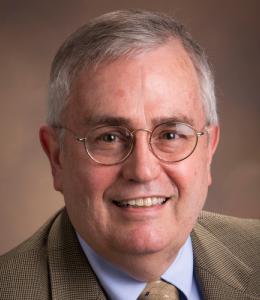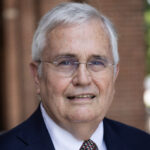In a crisis that could be a catastrophe for millions of Americans, politics may seem irrelevant. But politics probably made the coronavirus crisis worse, and yet it could prevent catastrophe for many. And crises can change politicians, and reveal things about them, so this space will keep tabs on those we have chosen to lead us; if that isn’t your cup of tea right now, please move on.

First, the good news. In our federal republic, the primary responsibility for public health lies with the states, and Kentucky Gov. Andy Beshear has clearly measured up.
Beshear was attorney general for four years and ran a winning gubernatorial campaign months ago, but his political career was built on his father’s name recognition and the blunderbussery of the governor who served between them. Now we have a better idea what Beshear is made of, and it’s sterner stuff than you may have thought.
He told churches, in a deeply religious state, not to have services. He closed schools, bars, restaurants, day-care centers, hair salons, bingo halls and more. He delayed the primary election by five weeks. All this was to slow the spread of the virus, and keep the disease it causes from overwhelming the health-care system. When he asked hospitals and doctors to stop elective surgeries and they sought exceptions, he threatened to make it mandatory.
The Democratic governor also got stern with the General Assembly, telling its Republican leaders that he wouldn’t call an open-ended special session to take care of business left hanging if they adjourned early and wouldn’t (at least right now, perhaps) negotiate the agenda, which governors set. Legislators decide the length of special sessions.
“I’m done with politics,” Beshear said repeatedly, noting that he’s making unpopular decisions. But he doth protest too much. His stance serves Democratic purposes in a legislature where Republicans can pass what they want and probably override most gubernatorial vetoes. Still, GOP leaders tempered their criticism, surely knowing that most voters are with the chief executive in a time of crisis.
To be sure, Andrew Beshear is no Andrew Cuomo. The New York governor’s morning press conferences have a frank, bracing air that fits the national moment, especially from the American hot zone of the pandemic. But Cuomo’s urban growl wouldn’t work here. Beshear is mostly soft-spoken, careful, methodical and repetitive, all of which is probably reassuring in a state where the fractionalization of media markets makes most Kentuckians unaccustomed to frequent, extended observation of our governors.
What really comes across is his earnestness. He often refers to his children, and sometimes he sounds like his whole audience is children, without talking down to us. That’s a valuable skill in this situation – especially in a state where the population has probably been more skeptical of warnings about the virus, largely because of its allegiance to the man who for too long was the chief skeptic.
Much has been written about how President Trump mismanaged the crisis, and most of it has been accurate. As the testing system floundered, the only big step he took was to ban flights from China, and by that time the virus had already spread around the world.
As more than one expert has said, for too long the president treated the threat as a public-relations problem more than a public-health problem. His weeks of public skepticism and downplaying the threat, in an apparent effort to protect the stock market, was an almost criminally irresponsible performance that will probably result in more deaths, if it hasn’t already.
Trump’s tone changed this week, but still isn’t right. Ever the salesman, he kept veering into PR in his appearances, bragging about his accomplishments, some of them largely irrelevant; using overly optimistic forecasts, adjectives and adverbs; and rambling into many tangents about a topic that needs clear, serious focus from the top.
His declaration that he is in “wartime presidency” showed how political and egotistical his thinking is. Look for the TV ads soon. But as one of his most trenchant critics, Washington Post columnist Dana Milbank, said, he’s the only president we have right now, so let’s pray for him.
Speaking of TV ads, why is Democratic challenger Amy McGrath attacking U.S. Sen. Mitch McConnell right now? Does she need to keep contributions coming in? Does she fear the absence of ads will let her more liberal, poorly funded challengers gain traction and embarrass her in the June 23 primary? Is she trying to capitalize on increased concern about crisis management by Trump, to whom McConnell has joined himself at the hip because he’s less popular than the president? (She doesn’t dare criticize Trump, at least yet.) Whatever the reasons, it’s not a good look.
For now, most Kentuckians are “done with politics.”
This article is republished with permission from NKyTribune.
Al Cross is professor emeritus of journalism at the University of Kentucky. He was the longest-serving political writer for the Louisville Courier Journal (1989-2004) and national president of the Society of Professional Journalists in 2001-02. He joined the Kentucky Journalism Hall of Fame in 2010. The NKyTribune is the home for his commentary which is also offered to other publications.






